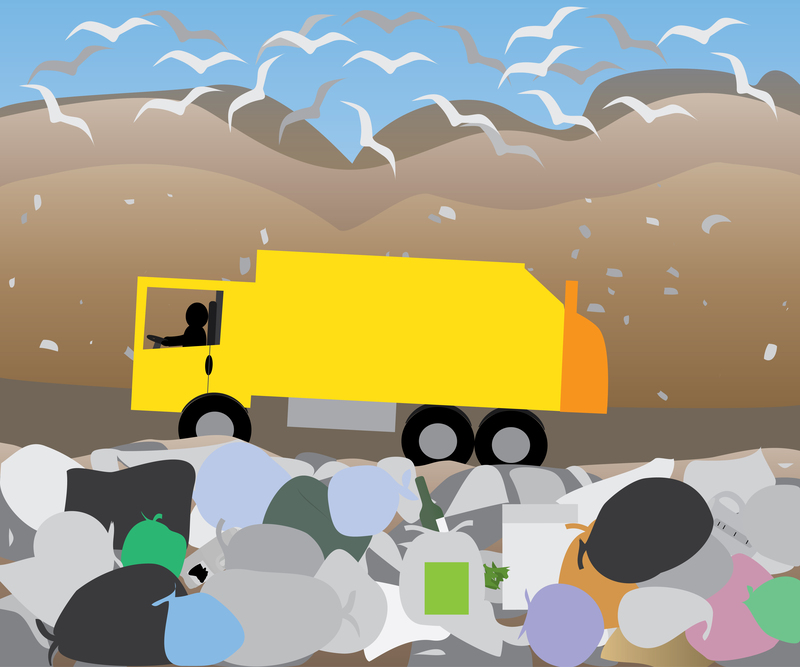As the global population continues to grow, so does the amount of waste generated by human activities. Careless waste disposal poses significant threats to our environment, impacting everything from soil health to marine ecosystems. In this article, we will delve into the various facets of this issue, analyzing how irresponsible waste handling affects our planet and exploring potential solutions to mitigate these impacts.
The Scope of Waste Disposal Issues
Waste production is an inevitable part of human life. However, how we manage this waste can determine the health of our ecosystems. Careless disposal methods, such as littering, open dumping, and improper waste management, contribute to severe environmental degradation. These methods leave a footprint that harms ecosystems, wildlife, and even human health.
The Prevalence of Waste Mismanagement
- Landfills: The majority of global waste ends up in landfills, which are often not adequately managed.
- Ocean Dumping: An alarming amount of waste finds its way into our oceans, disrupting marine life and polluting water bodies.
- Open Burning: In many regions, waste is burned openly, releasing toxic pollutants into the atmosphere.

Environmental Consequences of Improper Waste Disposal
Soil Contamination
When waste is disposed of carelessly, harmful chemicals and heavy metals can leach into the soil, causing soil contamination. This contamination can hinder plant growth and reduce the fertility of the land, posing long-term threats to agriculture and forest areas.
Water Pollution
Improper waste disposal is one of the leading causes of water pollution. The leachate from decomposing waste can enter water bodies, contaminating our water supply with hazardous substances. This not only affects aquatic life but also poses risks to human health through bioaccumulation of toxic substances in the food chain.
Air Pollution
Burning waste releases a range of harmful chemicals into the atmosphere, contributing to air pollution. Substances such as dioxins, furans, and particulate matter can cause respiratory issues in humans and animals alike. Furthermore, these pollutants contribute to climate change by enhancing the greenhouse effect.
The Impact on Wildlife and Biodiversity
Wildlife is particularly vulnerable to the repercussions of careless waste disposal. Animals can mistake plastic and other waste materials for food, leading to ingestion of toxic substances and eventual death. Additionally, entanglement in waste can result in injuries or fatalities, drastically affecting biodiversity.
Marine Ecosystem Threats
Marine life is severely affected by waste materials, especially plastics. Single-use plastics that end up in oceans form massive garbage patches, which are floating islands of waste. These pollutants not only threaten marine animals but also disrupt the delicate balance of marine ecosystems.
Socio-Economic Impacts
The environmental impact of improper waste disposal isn't limited to ecological damage alone; it also has profound socio-economic implications. Communities situated near landfills or waste-dumping sites often suffer from a lower quality of life due to pollution and health risks, impacting their socio-economic status.
Health Risks
Residents near waste sites are frequently exposed to hazardous substances, leading to various health issues such as respiratory problems, skin conditions, and other chronic diseases. Healthcare costs associated with these health issues pose a significant economic burden on these communities.
Economic Consequences
- Tourism: Destinations marred by pollution are less attractive to tourists, affecting the local economy significantly.
- Agriculture: Contaminated soil and water can lead to lower agricultural yields, impacting food security and income for farmers.

Potential Solutions for Effective Waste Management
Adopting Sustainable Practices
- Recycling and Reuse: Promoting the recycling and reuse of materials can significantly reduce the amount of waste that ends up in landfills and natural environments.
- Composting: Encouraging composting of organic waste can enhance soil health and reduce greenhouse gas emissions from landfills.
Policy and Regulation
Governments play a crucial role in managing waste disposal effectively by enacting stringent regulations and laws. Implementing bans on single-use plastics and incentivizing businesses to adopt eco-friendly practices are key steps towards mitigating the environmental impact of waste.
Public Awareness and Education
Effective waste management starts with public awareness and education. Encouraging individuals and communities to adopt waste reduction practices and educating them about the adverse effects of careless waste disposal can drive significant change at the grassroots level.
Conclusion
While the challenges posed by careless waste disposal are significant, the solutions are well within our reach. By adopting sustainable practices, enforcing stringent regulations, and raising awareness, we can move towards a future where our waste has minimal impact on the environment. Together, we can create a cleaner, healthier planet for generations to come.